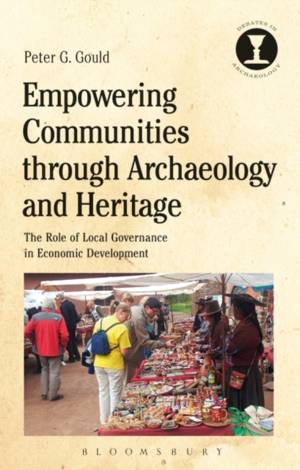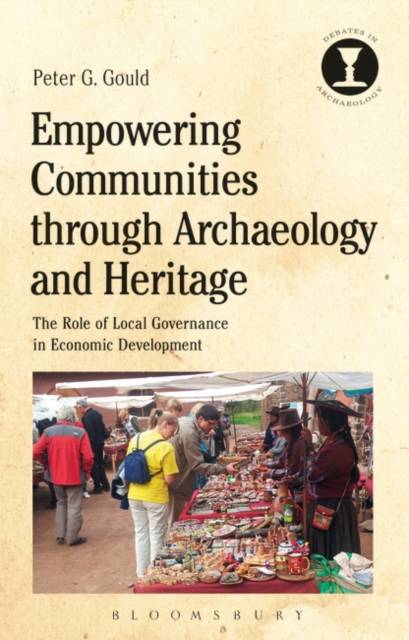
- Retrait gratuit dans votre magasin Club
- 7.000.000 titres dans notre catalogue
- Payer en toute sécurité
- Toujours un magasin près de chez vous
- Retrait gratuit dans votre magasin Club
- 7.000.000 titres dans notre catalogue
- Payer en toute sécurité
- Toujours un magasin près de chez vous
Empowering Communities Through Archaeology and Heritage
The Role of Local Governance in Economic Development
Peter G Gould
220,45 €
+ 440 points
Format
Description
Peter G. Gould seeks to identify the success factors associated with economic development projects within communities adjacent to archaeological or heritage sites, a growing interest among archaeologists and heritage managers. Typically, the success of site museums, tourism businesses, or crafts cooperatives is rarely reported on in scholarly literature or subjected to systematic study. This book addresses that gap.
Gould argues that the success of community projects is inextricably linked to the mechanisms community members use to govern their project activities, and provides a much-needed assessment of the issues relating to community governance. Drawing together insights from economic analysis, political science, tourism scholarship, complexity scholarship, and the governance of non-profit enterprises, Gould suggests a model for community governance and illustrates the workings of that model through four case studies. Armed with this book's theoretical foundation, heritage professionals will have practical approaches to consider when designing community economic development projects.Spécifications
Parties prenantes
- Auteur(s) :
- Editeur:
Contenu
- Nombre de pages :
- 200
- Langue:
- Anglais
- Collection :
Caractéristiques
- EAN:
- 9781350036222
- Date de parution :
- 25-01-18
- Format:
- Livre relié
- Format numérique:
- Genaaid
- Dimensions :
- 140 mm x 216 mm
- Poids :
- 381 g







